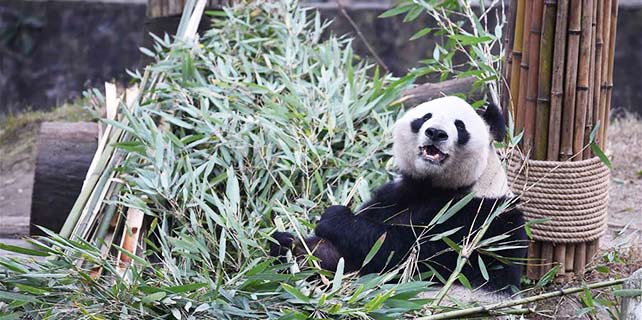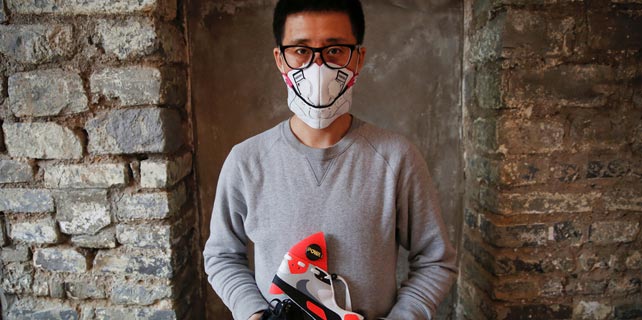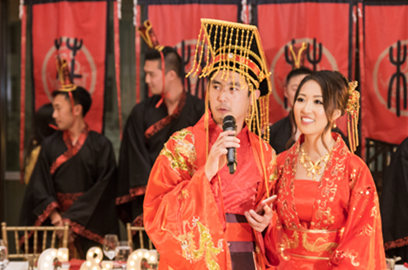Abe's Pearl Harbor gambit is not likely to pay off
Updated: 2016-12-26 12:16
By Cai Hong(chinadaily.com.cn)
|
||||||||
 |
|
Japan's Prime Minister Shinzo Abe delivers a speech during an extraordinary parliament session in Tokyo, Japan, on Sept. 26, 2016. [Photo/Xinhua] |
On purpose or by mistake, Japan's Foreign Ministry announced on Dec 5 that Prime Minister Shinzo Abe will visit Pearl Harbor on Monday and Tuesday becoming the first head of government in office to do so.
But Abe is not the first sitting Japanese prime minister to visit the Pearl Harbor; the Hawaii Hochi newspaper has reported that Shigeru Yoshida, Ichiro Hatoyama and Abe's grandfather Nobusuke Kishi visited the key World War II site as Japanese prime ministers in the 1950s. In fact, Hatoyama and Kishi are believed to have visited Pearl Harbor in an official capacity and the United States military even provided an honor guard to them.
Along with US President Barack Obama, Abe will visit the USS Arizona Memorial, which commemorates Americans killed during Japan's surprise attack on Pearl Harbor on Dec 7, 1941.
Therefore, Abe's visit to Hawaii is not only aimed at seeking reconciliation for the attack on Pearl Harbor but also to send a signal to US president-elect Donald Trump who takes office on Jan 20.
When Obama paid a visit to Hiroshima in May, Trump tweeted: "Does President Obama ever discuss the sneak attack on Pearl Harbor while he's in Japan? Thousands of American lives lost." In what could be considered a response to Trump's question, Japan's Chief Cabinet Secretary Yoshihide Suga has said Abe's visit to Pearl Harbor will "express the value of reconciliation" between the two countries.
Daniel Kritenbrink, senior director for Asian affairs at the National Security Council, has said that Obama is expected to term Tuesday's event in Pearl Harbor "a demonstration of the strength of our alliance" and "a powerful demonstration of how the two countries can overcome a very painful history to become the closest of allies and friends". Kritenbrink also said that based on communications with his Japanese counterparts and Abe's own comments, Washington believes the Japanese leader is "approaching this event from a similar perspective".
"Not just Abe, but the whole foreign policy community in Japan, is desperate to send a message not just to the world, but to (US) president-elect Trump, that the US-Japan alliance is strong and can only get stronger," Sophia University professor Koichi Nakano said in an interview with Reuters.
In an article published on the Foreign Affairs magazine website, Zach Przystup, associate director of Global Executive and Diplomatic Education at the Fletcher School at Tufts University, called Abe's visit to Pearl Harbor "the pragmatism of reconciliation". Przystup said: "Abe's efforts to dull his nationalist impulses may not reflect a personal conversion, but they do demonstrate a shrewd and pragmatic understanding of Japan's current geopolitical reality."
On Thursday Japan's National Security Council approved the operating guidelines, including the Self-Defense Forces offering protection to US and other foreign military even during peacetime, or so-called gray areas that do not directly involve a military attack. Besides, Abe's Cabinet has approved a record high defense budget of 5.1 trillion yen ($44 billion).
For the first time, Japan has earmarked a sum of 14.7 billion yen ($125.3 million) for an advanced ship-based ballistic missile interceptor, the Standard Missile-3 Block 2A, which was co-developed with the US. And research funds will be allocated for the potential procurement of new equipment, such as the US' Terminal High Altitude Area Defense anti-missile system.
But according to an NHK poll conducted on Nov 11-14, 37 percent of the respondents said US-Japan relations will worsen and 35 percent predicted an "unchanged" relationship, with only 5 percent saying it would improve under the incoming Trump administration.
The findings of a Yomiuri Shimbun poll conducted on Nov 12-13 were even more pessimistic, according to which about 58 percent of the respondents said "instability" will grow.
And given Trump's unpredictable foreign policy, it is difficult to say whether Abe's reconciliatory visit to Pearl Harbor will get the desired response from the incoming US administration.
- Merkel praises Germans for 'level-headed' response to attack
- Icy winter of Siberia hits record low temperature
- Germany deports 50 rejected Afghan asylum seekers
- Merkel reelected as chairman of CDU party
- Lebanese women protest over unreasonable rape law
- World's longest railway tunnel gets go-ahead for commercial use

 Ten key messages from the agenda-setting conference
Ten key messages from the agenda-setting conference
 Ten movies that got people talking in 2016
Ten movies that got people talking in 2016
 Monkeys enjoy Christmas feast in Zhengzhou
Monkeys enjoy Christmas feast in Zhengzhou
 Nursing home for aged pandas in Sichuan
Nursing home for aged pandas in Sichuan
 Harbin's snow and ice festival starts trial run
Harbin's snow and ice festival starts trial run
 In Lapland home, Santa prepares for Christmas
In Lapland home, Santa prepares for Christmas
 Beijing designer turns sneakers into smog masks
Beijing designer turns sneakers into smog masks
 Mexico fireworks market blast kills at least 27, hurts scores
Mexico fireworks market blast kills at least 27, hurts scores
Most Viewed
Editor's Picks

|

|

|

|

|

|
Today's Top News
'Broadway Classroom' to debut in China
Navarro pick stokes concerns on bilateral ties
Across America
Goings on: Huston (Dec 23)
Taobao back on US fake blacklist
Searching for signs of future diseases
Destination Houston: to fight cancer
Edward Gong: keeping connected
US Weekly

|

|








